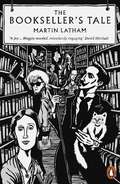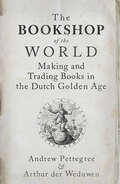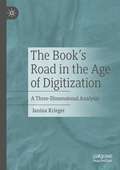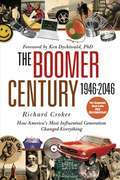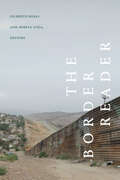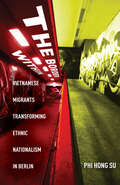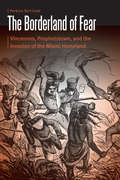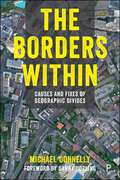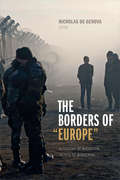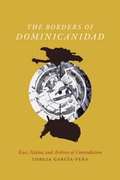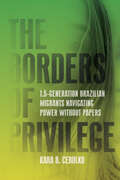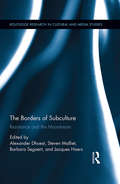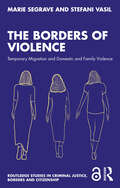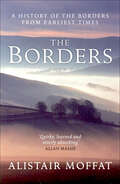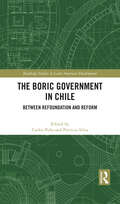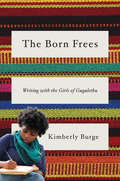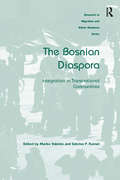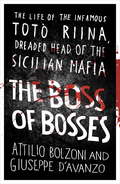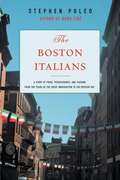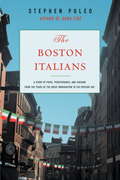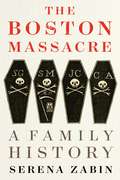- Table View
- List View
The Bookseller's Tale
by Martin LathamA SPECTATOR AND EVENING STANDARD BOOK OF THE YEAR 2020'A joy. Each chapter instantly became my favourite' David Mitchell, author of Cloud Atlas'Wonderful' Lucy Mangan'The right book has a neverendingness, and so does the right bookshop.'This is the story of our love affair with books, whether we arrange them on our shelves, inhale their smell, scrawl in their margins or just curl up with them in bed. Taking us on a journey through comfort reads, street book stalls, mythical libraries, itinerant pedlars, radical pamphleteers, extraordinary bookshop customers and fanatical collectors, Canterbury bookseller Martin Latham uncovers the curious history of our book obsession - and his own. Part cultural history, part literary love letter and part reluctant memoir, this is the tale of one bookseller and many, many books.'If ferreting through bookshops is your idea of heaven, you'll get the same pleasure from this treasure trove of a book' Jake Kerridge, Sunday Express
The Bookshop of the World: Making and Trading Books in the Dutch Golden Age
by Andrew Pettegree Arthur der WeduwenThe untold story of how the Dutch conquered the European book market and became the world’s greatest bibliophiles.The Dutch Golden Age has long been seen as the age of Rembrandt and Vermeer, whose paintings captured the public imagination and came to represent the marvel that was the Dutch Republic. Yet there is another, largely overlooked marvel in the Dutch world of the seventeenth century: books.In this fascinating account, Andrew Pettegree and Arthur der Weduwen show how the Dutch produced many more books than pictures and bought and owned more books per capita than any other part of Europe. Key innovations in marketing, book auctions, and newspaper advertising brought stability to a market where elsewhere publishers faced bankruptcy, and created a population uniquely well-informed and politically engaged. This book tells for the first time the remarkable story of the Dutch conquest of the European book world and shows the true extent to which these pious, prosperous, quarrelsome, and generous people were shaped by what they read.“Book history at its best.” —Robert Darnton, New York Review of Books“Compelling and impressive.” —THES (Book of the Week)“An instant classic on Dutch book history.” —BMGN - Low Countries Historical Review
The Bookshop: A History of the American Bookstore
by Evan FrissA NEW YORK TIMES BESTSELLER Goodreads Choice Award Winner in History & Biography One of Time&’s 100 Must-Read Books of 2024 "A spirited defense of this important, odd and odds-defying American retail category." —The New York Times"It is a delight to wander through the bookstores of American history in this warm, generous book." —Emma Straub, New York Times bestselling author and owner of Books Are MagicAn affectionate and engaging history of the American bookstore and its central place in American cultural life, from department stores to indies, from highbrow dealers trading in first editions to sidewalk vendors, and from chains to special-interest community destinationsBookstores have always been unlike any other kind of store, shaping readers and writers, and influencing our tastes, thoughts, and politics. They nurture local communities while creating new ones of their own. Bookshops are powerful spaces, but they are also endangered ones. In The Bookshop, we see the stakes: what has been, and what might be lost.Evan Friss&’s history of the bookshop draws on oral histories, archival collections, municipal records, diaries, letters, and interviews with leading booksellers to offer a fascinating look at this institution beloved by so many. The story begins with Benjamin Franklin&’s first bookstore in Philadelphia and takes us to a range of booksellers including the Strand, Chicago&’s Marshall Field & Company, the Gotham Book Mart, specialty stores like Oscar Wilde and Drum and Spear, sidewalk sellers of used books, Barnes & Noble, Amazon Books, and Parnassus. The Bookshop is also a history of the leading figures in American bookselling, often impassioned eccentrics, and a history of how books have been marketed and sold over the course of more than two centuries—including, for example, a 3,000-pound elephant who signed books at Marshall Field&’s in 1944.The Bookshop is a love letter to bookstores, a charming chronicle for anyone who cherishes these sanctuaries of literature, and essential reading to understand how these vital institutions have shaped American life—and why we still need them.
The Books’ Road in the Age of Digitization: A Three-Dimensional Analysis
by Janina KriegerAlthough every area of life is permeated by digital processes, the majority of Germans seem to resist digital alternatives with regard to the activity of reading. The printed book continues to enjoy much greater popularity than the eBook. This seems surprising, since the entire communication behavior has moved to digital devices. So what lies behind this? Why are there still printed books in digital times? Previous studies of the printed book have focused primarily on its media future, as this seemed threatened by digitization. In this work, Janina Krieger instead examines the past from three perspectives in order to gain insights into the present. While other studies always chose one method and these mostly belonged to the quantitative approach, here three subjects are identified, which are examined with different methods and in their combination can provide an answer to the research question: the consumers of literature (the readers), literature itself (the selected genre is the novel), and the media theories of the 20th century, which have already dealt with media change.
The Boomer Century 1946-2046: How America's Most Influential Generation Changed Everything
by Richard CrokerThe Baby Boom generation has always been known as a demographic anomaly and these 77 million Americans have dominated our society for the past 60 years, setting trends and revolutionizing entire industries. They didn't just date, they transformed sex roles and practices. They didn't just go to the doctor, they reinvented healthcare. And now retirement and aging will never be the same as the oldest boomers move into their 60s with no thoughts of traditional retirement or old-age homes! Featuring insightful interviews and essays from Baby Boomers like Dr. Andrew Weill, Erica Jong, Eve Ensler, Rob Reiner, Oliver Stone, Lester Thurow, and Tony Snow, THE BOOMER CENTURY is an entertaining, historical and cultural look at a truly amazing generation.
The Border Reader
by Gilberto Rosas and Mireya LozaThe Border Reader brings together canonical and cutting-edge humanities and social science scholarship on the US-Mexico border region. Spotlighting the vibrancy of border studies from the field’s emergence to its enduring significance, the essays mobilize feminist, queer, and critical ethnic studies perspectives to theorize the border as a site of epistemic rupture and knowledge production. The chapters speak to how borders exist as regions where people and nation-states negotiate power, citizenship, and questions of empire. Among other topics, these essays examine the lived experiences of the diverse undocumented people who move through and live in the border region; trace the gendered and sexualized experiences of the border; show how the US-Mexico border has become a site of illegality where immigrant bodies become racialized and excluded; and imagine anti- and post-border futures. Foregrounding the interplay of scholarly inquiry and political urgency stemming from the borderlands, The Border Reader presents a unique cross section of critical interventions on the region.Contributors. Leisy J. Abrego, Gloria E. Anzaldúa, Martha Balaguera, Lionel Cantú, Leo R. Chavez, Raúl Fernández, Rosa-Linda Fregoso, Roberto G. Gonzales, Gilbert G. González, Ramón Gutiérrez, Kelly Lytle Hernández, José E. Limón, Mireya Loza, Alejandro Lugo, Eithne Luibhéid, Martha Menchaca, Cecilia Menjívar, Natalia Molina, Fiamma Montezemolo, Américo Paredes, Néstor Rodríguez, Renato Rosaldo, Gilberto Rosas, María Josefina Saldaña-Portillo, Sonia Saldívar-Hull, Alicia Schmidt Camacho, Sayak Valencia Triana, Carlos G. Vélez-Ibáñez, Patricia Zavella
The Border Trumpet
by Ernest HaycoxLOVE AND ADVENTURE ON THE FRONTIERThis is a story of some of the soldiers who won the West through bitter battles against the Indians, paying for the expansion of a continent with their blood, the story of their life in battle and between battles. It is the story, too, of Eleanor Warren, to whom the frontier post, with all its hardships, had always been home. When she rejoined her father’s regiment at its newest frontier in Arizona, she found Phil Castleton, whom she had loved for three years, waiting for her. And she found, too, a new member of the regiment, Tom Benteen, who strangely attracted her. It was when the rigors of battle revealed the difference between Phil and Tom that she was faced with the difficult decision that was to determine her life.
The Border Within: Vietnamese Migrants Transforming Ethnic Nationalism in Berlin
by Phi Hong SuWhen the Berlin Wall fell, Germany united in a wave of euphoria and solidarity. Also caught in the current were Vietnamese border crossers who had left their homeland after its reunification in 1975. Unwilling to live under socialism, one group resettled in West Berlin as refugees. In the name of socialist solidarity, a second group arrived in East Berlin as contract workers. The Border Within paints a vivid portrait of these disparate Vietnamese migrants' encounters with each other in the post-socialist city of Berlin. Journalists, scholars, and Vietnamese border crossers themselves consider these groups that left their homes under vastly different conditions to be one people, linked by an unquestionable ethnic nationhood. Phi Hong Su's rigorous ethnography unpacks this intuition. In absorbing prose, Su reveals how these Cold War compatriots enact palpable social boundaries in everyday life. This book uncovers how 20th-century state formation and international migration—together, border crossings—generate enduring migrant classifications. In doing so, border crossings fracture shared ethnic, national, and religious identities in enduring ways.
The Borderland of Fear: Vincennes, Prophetstown, and the Invasion of the Miami Homeland (Borderlands and Transcultural Studies)
by Patrick BottigerPublished through the Early American Places initiative, supported by the Andrew W. Mellon Foundation. The Ohio River Valley was a place of violence in the nineteenth century, something witnessed on multiple stages ranging from local conflicts between indigenous and Euro-American communities to the Battle of Tippecanoe and the War of 1812. To describe these events as simply the result of American expansion versus Indigenous nativism disregards the complexities of the people and their motivations. Patrick Bottiger explores the diversity between and among the communities that were the source of this violence. As new settlers invaded their land, the Shawnee brothers Tenskwatawa and Tecumseh pushed for a unified Indigenous front. However, the multiethnic Miamis, Kickapoos, Potawatomis, and Delawares, who also lived in the region, favored local interests over a single tribal entity. The Miami-French trade and political network was extensive, and the Miamis staunchly defended their hegemony in the region from challenges by other Native groups. Additionally, William Henry Harrison, governor of the Indiana Territory, lobbied for the introduction of slavery in the territory. In its own turn, this move sparked heated arguments in newspapers and on the street. Harrisonians deflected criticism by blaming tensions on indigenous groups and then claiming that antislavery settlers were Indian allies. Bottiger demonstrates that violence, rather than being imposed on the region’s inhabitants by outside forces, instead stemmed from the factionalism that was already present. The Borderland of Fear explores how these conflicts were not between nations and races but rather between cultures and factions.
The Borders Within: Causes and Fixes of Geographic Divides
by Michael DonnellyGeographic divisions that exist internally within countries – ‘the borders within’ – can be seen in how much people earn and levels of economic growth, as well as in health and educational outcomes. With fresh thinking, this book explores what lies beneath these geographic divisions and what maintains them. Its novel framework shows how different social class groups derive radically different meanings from place that heighten geographic divisions. Drawing on research with over 200 young people across 17 different UK localities, this book challenges orthodox policy understandings of regional development, putting forward an alternative starting point for how we address borders within countries.
The Borders of "Europe": Autonomy of Migration, Tactics of Bordering
by Nicholas De GenovaIn recent years the borders of Europe have been perceived as being besieged by a staggering refugee and migration crisis. The contributors to The Borders of "Europe" see this crisis less as an incursion into Europe by external conflicts than as the result of migrants exercising their freedom of movement. Addressing the new technologies and technical forms European states use to curb, control, and constrain what contributors to the volume call the autonomy of migration, this book shows how the continent's amorphous borders present a premier site for the enactment and disputation of the very idea of Europe. They also outline how from Istanbul to London, Sweden to Mali, and Tunisia to Latvia, migrants are finding ways to subvert visa policies and asylum procedures while negotiating increasingly militarized and surveilled borders. Situating the migration crisis within a global frame and attending to migrant and refugee supporters as well as those who stoke nativist fears, this timely volume demonstrates how the enforcement of Europe’s borders is an important element of the worldwide regulation of human mobility. Contributors. Ruben Andersson, Nicholas De Genova, Dace Dzenovska, Evelina Gambino, Glenda Garelli, Charles Heller, Clara Lecadet, Souad Osseiran, Lorenzo Pezzani, Fiorenza Picozza, Stephan Scheel, Maurice Stierl, Laia Soto Bermant, Martina Tazzioli
The Borders of Dominicanidad: Race, Nation, and Archives of Contradiction
by Lorgia García-PeñaIn The Borders of Dominicanidad Lorgia García-Peña explores the ways official narratives and histories have been projected onto racialized Dominican bodies as a means of sustaining the nation's borders. García-Peña constructs a genealogy of dominicanidad that highlights how Afro-Dominicans, ethnic Haitians, and Dominicans living abroad have contested these dominant narratives and their violent, silencing, and exclusionary effects. Centering the role of U.S. imperialism in drawing racial borders between Haiti, the Dominican Republic, and the United States, she analyzes musical, visual, artistic, and literary representations of foundational moments in the history of the Dominican Republic: the murder of three girls and their father in 1822; the criminalization of Afro-religious practice during the U.S. occupation between 1916 and 1924; the massacre of more than 20,000 people on the Dominican-Haitian border in 1937; and the 2010 earthquake in Haiti. García-Peña also considers the contemporary emergence of a broader Dominican consciousness among artists and intellectuals that offers alternative perspectives to questions of identity as well as the means to make audible the voices of long-silenced Dominicans.
The Borders of Privilege: 1.5-Generation Brazilian Migrants Navigating Power Without Papers (Articulations: Studies in Race, Immigration, and Capitalism)
by Kara CebulkoBecause whiteness is not a given for Brazilians in the U.S., some immigrants actively construct it as a protective mechanism against the stigma normally associated with illegality. In The Borders of Privilege, Kara Cebulko tells the stories of a group of 1.5-generation Brazilians to show how their ability to be perceived as white—their power without papers—shapes their everyday interactions. By strategically creating boundaries with other racialized groups, these immigrants navigate life-course rituals like college, work, and marriage without legal documentation. Few identify as white in the U.S., even as they benefit from the privileges of whiteness. The legal exclusion they feel as undocumented immigrants from Latin America makes them feel a world apart from their white citizen peers. However, their constructed whiteness benefits them when it comes to interactions with law enforcement and professional advancement, challenging narratives that frame legality as a "master-status." Understanding these experiences requires us to explore interlocking systems of power, including white supremacy and capitalism, as well as global histories of domination. Cebulko traces the experiences of her interviewees across various stages of life, applying a "power without paper" lens, and making the case for integrating this perspective into future scholarship, collective broad-based movements for social justice, and public policy.
The Borders of Race in Colonial South Africa
by Robert RossThis book provides a detailed narrative of the Kat River Settlement in the Eastern Cape of South Africa during the nineteenth century. The settlement was created by the British to use the Khoekhoe as a living barrier between the Cape Colony and the amaXhosa. It was fought over with some regularity, however, and finally broken up after some of the Khoekhoe joined the amaXhosa in their war against the colony. Nevertheless, in the time that the settlement existed, the Khoekhoe both created a fertile landscape in the valley and developed a political theology of great importance for the evolution of South Africa. They were also the subjects of - and participants in - the major debates leading to the introduction of a liberal constitution for the Cape in 1853. The history of the settlement is thus crucial in understanding the development of both colonial racism and the creation of the colony's non-racial democracy.
The Borders of Subculture: Resistance and the Mainstream (Routledge Research in Cultural and Media Studies)
by Jacques Haers Barbara Segaert Alexander Dhoest Steven MallietThis book aims to revisit the notion of subculture for the 21st century, reinterpreting it and extending its scope. On the one hand, the notion of resistance is redefined and applied to contemporary practices of cultural production and entrepreneurship. On the other hand, contributors reconsider the connection of subcultures to everyday culture, exploring more mainstream forms of cultural production and consumption across a wider range of social groups. As a consequence, this book extends the scope to look beyond the white, male, adolescent, urban cultures identified with earlier subcultural studies. Contributors also examine fusions and crossovers between Western and non-Western cultural practices.
The Borders of Violence: Temporary Migration and Domestic and Family Violence (Routledge Studies in Criminal Justice, Borders and Citizenship)
by Marie Segrave Stefani VasilThis book explores the structural harm of borders and non-citizenship, specifically temporary non-citizenship, in the perpetuation of domestic and family violence (DFV). It focuses on the stories and situations of over 300 women in Australia. The analysis foregrounds how the state and the migration system both sustain and enable violence against women. In doing so this book demonstrates how structural violence is an insidious component of gendered violence – limiting and curtailing women’s safety. The Borders of Violence advances contemporary research on DFV by considering the role of the state and the migration system. It bridges different fields of scholarship to interrogate our knowledge about DFV and its impacts and improve our critical accounts of gender, structural violence and borders. It illuminates the ways in which temporary non-citizens are often silenced and/or their experiences are obfuscated by state processes, policies and practices, which are weaponised by perpetrators in countries of destination and origin, with impunity. An accessible and compelling read, this book will appeal to students and scholars of border criminology, criminology, sociology, politics, sociology, law and social policy. It offers key insights for professionals, policymakers, stakeholders and advocates working broadly to support temporary non-citizens and/or to address and eliminate violence against women.
The Borders of the EU: European Integration, "Schengen" and the Control of Migration (essentials)
by Jochen OltmerThis book looks at the background to the policy of free movement in Europe and discusses the consequences. European integration changed migration conditions considerably: Under the concept of "freedom of movement", border crossings between EU member states as well as work and settlement by nationals of other member states were largely facilitated; internal borders thus lost their significance. At the same time, the question of how to deal with a common external border and the migration of "third-country nationals" gained in importance. The essential explains why migration from outside Europe was increasingly understood as a problem of security policy and why this still determines the measures for designing a common external border today.
The Borders: A History of the Borders from Earliest Times
by Alistair MoffatA &“beautifully written&” history of the Scottish Borders—from the Ice Age to present day—by the author of Scotland: A History from Earliest Times (Boston Sunday Herald). This is the story of the border: a place of beginnings and endings, of differences and similarities. It is the story of England and Scotland, told not from the remoteness of London or Edinburgh or in the tired terms of national histories, but up close and personal, toe to toe and eyeball to eyeball across the tweed, the Cheviots, the Esk, and the tidal races of the upper Solway. This is a tale told in blood, fun, and granite-hard memory. This is the story of an ancient place where hunter-gatherers penetrated into the virgin interior, where Celtic warlords ruled and the Romans came but could not conquer, where the glittering kingdom of Northumbria thrived, where David MacMalcolm raised great abbeys, and where Walter Scott sat at Abbotsford and brooded on the area&’s rich and historic legacy. &“Highly readable—a lively, clear style.&” —Northern History &“Quirky, learned and utterly absorbing.&” —Allan Massie, award-winning author of The Royal Stuarts
The Boric Government in Chile: Between Refoundation and Reform (Routledge Studies in Latin American Development)
by Carlos Peña Patricio SilvaThis book analyses the victory of Gabriel Boric in Chile during the presidential elections of December 2021. He brought the radical left into power, after three decades of centre- left and right- wing governments. In order to explain this abrupt political mutation in the country, the book explores a series of fast and deep social and cultural transformations experienced in the country in the last decades. In addition, the book considers the main features of the new Boric government both in terms of goals and in terms of performance in his first year in office in several key areas of policy making. The triumph of the radical left in Chile poses several questions regarding the ability of the Boric administration to guarantee political and economic stability in the country. Among the greatest challenges the Boric government will have to face in the coming years are the reduction of inflation, the reactivation of the economy, the regulation of illegal immigration and the improvement of public security among the population. This book constitutes the first major academic attempt in the English language to provide a broad analysis of the Boric government in Chile and the changes the country will experience in the years ahead. The book will be of interest to students, scholars and practitioners who are interested in the evolution of the Latin American left in general, and the Chilean left in particular. The book has been conceived from a multidisciplinary perspective, including insights coming from history, sociology, political science, economics, institutional law and development studies.
The Born Frees: Writing with the Girls of Gugulethu
by Kimberly BurgeA creative writing group unites and inspires girls of the first South African generation "born free." Born into post-apartheid South Africa, the young women of the townships around Cape Town still face daunting challenges. Their families and communities have been ravaged by poverty, violence, sexual abuse, and AIDS. Yet, as Kimberly Burge discovered when she set up a writing group in the township of Gugulethu, the spirit of these girls outshines their circumstances. Girls such as irrepressible Annasuena, whose late mother was one of South Africa's most celebrated singers; bubbly Sharon, already career-bound; and shy Ntombi, determined to finish high school and pursue further studies, find reassurance and courage in writing. Together they also find temporary escape from the travails of their lives, anxieties beyond boyfriends and futures: for some of them, worries that include HIV medication regimens, conflicts with indifferent guardians, struggles with depression. Driven by a desire to claim their own voices and define themselves, their writing in the group Amazw'Entombi, "Voices of the Girls," provides a lodestar for what freedom might mean.
The Bosnian Diaspora: Integration in Transnational Communities (Research in Migration and Ethnic Relations Series)
by Marko ValentaThe Bosnian Diaspora: Integration in Transnational Communities provides a comprehensive insight into the situation of the Bosnian Diaspora, including not only experiences in 'western' countries, but also the integration experiences of Bosnian migrants in neighbouring territories, such as Croatia, Serbia and Slovenia. The book presents the latest trans-national comparative studies drawn from the US and Australia as well as countries across Europe, to explore post-crisis interactions among Bosnians and the impact of post-conflict related migration. Examining the common features of the Diaspora, including the responses of migrants to changes within Bosnia and the position of displaced people in both Bosnian society itself and local political discourses, this volume addresses the influence of global anti-Muslim rhetoric on the Bosnian Diaspora's self-identification and refugees' relationships to their home country. The extent to which refugees and returnees can be described as agents of globalization and social change is also considered, whilst addressing the issue of Bosnian integration into various receiving countries and the influence exercised by European reception policies on receiving nations outside Europe. An extensive exploration of a major post-conflict European Diaspora, this book will appeal to those with interests in migration, ethnicity, integration and the displacement effects of Yugoslav conflicts.
The Boss of Bosses: The Life of the Infamous Toto Riina Dreaded Head of the Sicilian Mafia
by Giuseppe D'Avanzo Attilio BolzoniThis is the true story of Totò Riina, the Cosa Nostra boss who rose from nothing to become the most powerful man in Sicily. The picture emerges of a bloodthirsty, power-hungry monster who, despite his lowly beginnings, is able to outmanoeuvre the other Mafia chiefs and take control of the organisation. However, the story is not just that of Riina, but also of Sicily itself. D'Avanzo and Bolzoni have transformed a complex series of events spanning several decades into a gripping narrative.In prison for 18 years now, Totò Riina still remains the dictator of the Cosa Nostra. This book tells the haunting and disturbing tale, with thorough investigation and testimony of the Sicilian Corleone.
The Boston Italians
by Stephen PuleoBoston resident Puleo digs up the history of Italians and Italian-Americans in Boston's North End, from mass migrations beginning in 1880 through the first and second World Wars, the depression, and onto the present. Topics include violence at the hands of the Irish powers-that-be and difficult struggles for citizenship and equal rights, inter-Italian separation, local fallout of the Sacco and Vanzetti executions, and Boston-Italian leaders--some criminal, some not. Annotation ©2008 Book News, Inc. , Portland, OR (booknews. com)
The Boston Italians
by Steve PuleoIn this lively and engaging history, Stephen Puleo tells the story of the Boston Italians from their earliest years, when a largely illiterate and impoverished people in a strange land recreated the bonds of village and region in the cramped quarters of the North End. Focusing on this first and crucial Italian enclave in Boston, Puleo describes the experience of Italian immigrants as they battled poverty, illiteracy, and prejudice; explains their transformation into Italian Americans during the Depression and World War II; and chronicles their rich history in Boston up to the present day.
The Boston Massacre: A Family History
by Serena ZabinA dramatic untold &‘people&’s history&’ of the storied event that helped trigger the American Revolution The story of the Boston Massacre—when on a late winter evening in 1770, British soldiers shot five local men to death—is familiar to generations. But from the very beginning, many accounts have obscured a fascinating truth: the Massacre arose from conflicts that were as personal as they were political. Professor Serena Zabin draws on original sources and lively stories to follow British troops as they are dispatched from Ireland to Boston in 1768 to subdue the increasingly rebellious colonists. And she reveals a forgotten world hidden in plain sight: the many regimental wives and children who accompanied these armies. We see these families jostling with Bostonians for living space, finding common cause in the search for a lost child, trading barbs and and sharing baptisms. Becoming, in other words, neighbors. When soldiers shot unarmed citizens in the street, it was these intensely human, now broken bonds that fueled what quickly became a bitterly fought American Revolution. Serena Zabin&’s The Boston Massacre delivers an indelible new slant on iconic American Revolutionary history.
